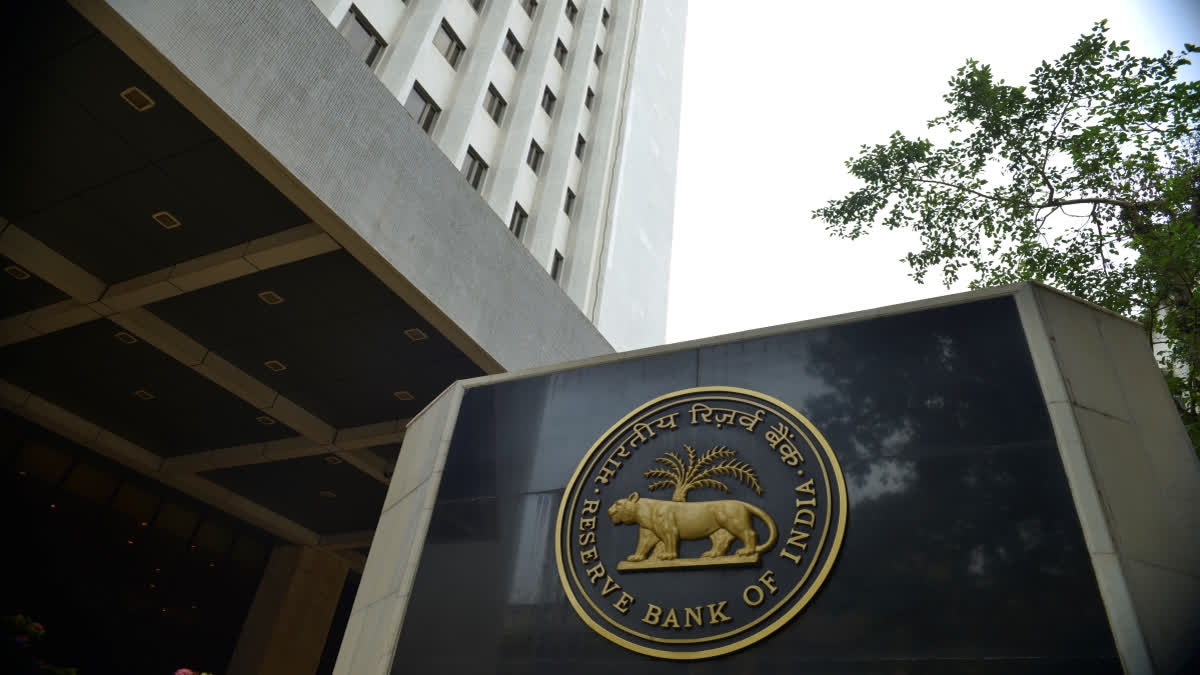New Delhi: In her book 'A Fly on the RBI Wall' Alpana Killawala writes about many events that occurred during her tenure in the Reserve Bank of India. She begins her book with her entry into the RBI office in Mumbai and narrates the uncovering of the Harshad Mehta scam. She also described the efforts made by the RBI to safeguard its reputation during the entire incident.
According to the book, published by Rupa Publications, "When the Harshad Mehta scam was unearthed, it was RBI Governor (S) Venkitaramanan, who understood the connection between trading in banker's receipts (BRs) and the rising stock market, which was what Harshad Mehta was engaged in. Harshad borrowed money from banks through BRs, invested it in 'badla' in the stock market, and returned the money to the banks two days later when the 'badla' transaction would unwind."
Alpana Killawala writes that it was Venkitaramanan, who discerned the dubious connection between the government securities market and the stock market that had been ongoing for many years. Trading in BRs was illegal and needed to be halted, but stopping it proved to be challenging.
As an employee of the RBI, she further explains that when Venkitaramanan assumed the role of Governor and became aware of this issue, he decided to stop this practice, even though it had been an accepted norm in the market.
According to the book, after the scam came to light, the RBI established the Janakiraman Committee, and the government formed a Joint Parliamentary Committee (JPC) to investigate the matter. Unbeknownst to the public, Venkitaramanan also formed an informal committee comprising a few young RBI officers to coordinate and strategise communication with the JPC. This included organising information and documents to be provided to both committees.
Informally, the Governor included Alpana Killawala in this group. Her role primarily involved offering an outsider's perspective to the committee and assisting in communication strategies. Additionally, the Governor tasked her with travelling to Delhi to meet her journalist contacts and gather information about the developments related to the case.
Alpana wrote that she went to Delhi and met a few journalists whom she knew. Her friends also helped her connect with others. However, she quickly realised that the Delhi media had its agenda. This was possibly because Delhi is a power centre where politicians and journalists often leverage each other for their own benefit.
She writes, "I came to know that Delhi journalists had decided that the Governor’s head would roll in the Harshad Mehta scam." "My weekly visits to Delhi were now filled with meetings with journalists, where I tried to convince them about the Governor's work at the RBI and the positive role he had played in uncovering the scam," writes Alpana.
"I met with editors as well as grassroots reporters in their offices and even at the press club. Unintentionally, I began educating journalists about how the RBI operated. Gradually, the discussions became less contentious, and journalists started to listen to me. I would show them the documents that had convinced me that the RBI was, and should be, the prosecutor and not the prosecuted. Yet, they either did not or could not acknowledge it," writes Alpana.
Besides this, the RBI conducted a few off-the-record sessions with journalists to help them understand the RBI's workings.
"The story of Harshad Mehta has a sad ending. Not only did he die in jail, but some of his contemporaries, who were implicated in the securities irregularities also met a similar fate. M. J. Pherwani, Chairman of UTI; B. Ratnakar, Chairman of Canara Bank; the treasury managers of State Bank of India and the Discount and Finance House of India (DFHI) also passed away. They were all involved in the securities scam. Some others, like the treasury manager and two of his top traders in Citibank, simply disappeared from the Indian scene. There were stories circulating about the Citibank treasury head's whereabouts, but no one could confirm the details. Others, such as associates of Harshad Mehta and Bhupen Dalal, served long terms in jail,” Alpana writes.



